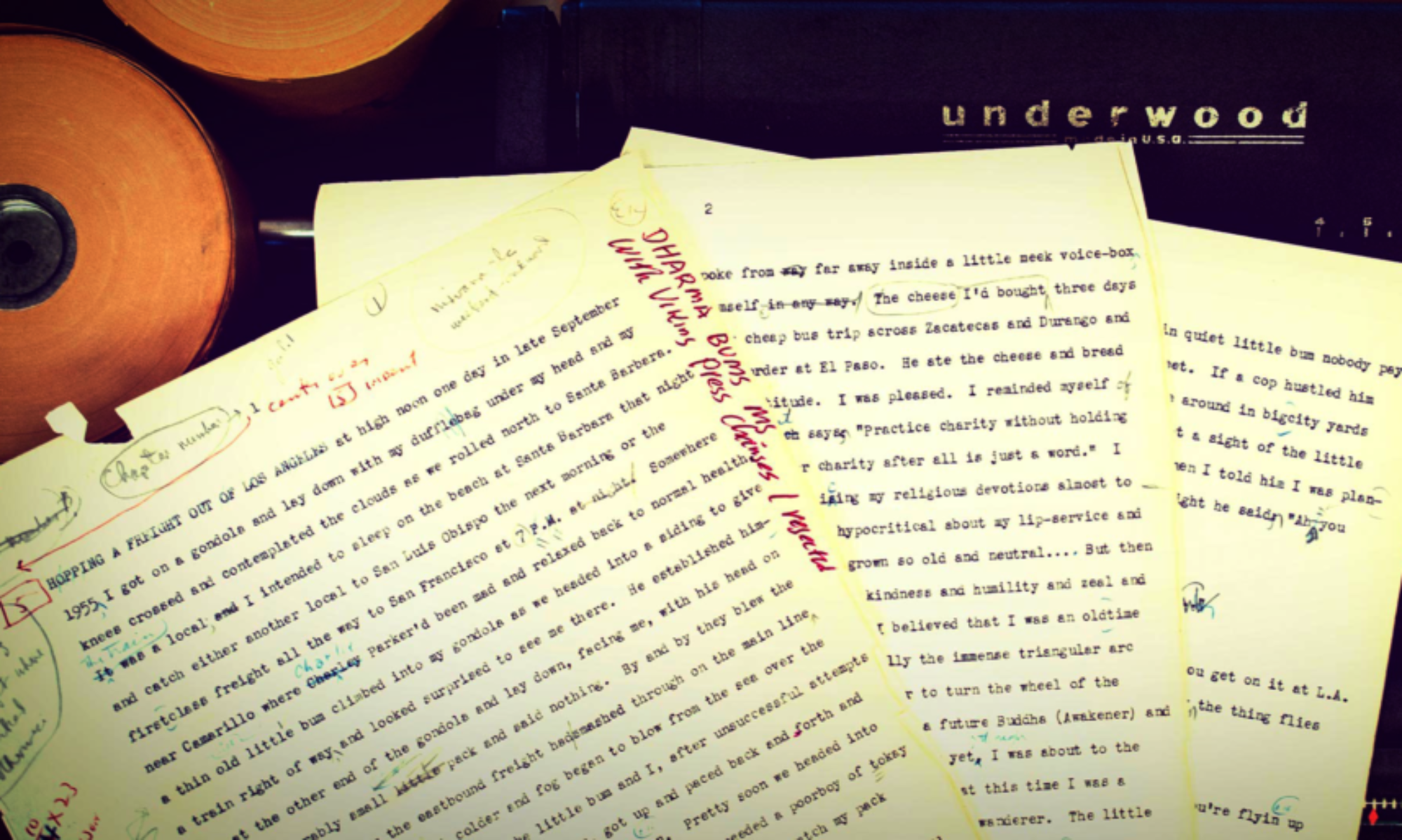Professor Ron Schuchard has won the MLA Prize for a Scholarly Edition for his work on The Complete Prose of T.S. Eliot. Below is an interview between Professor Schuchard and the English Department Chair, Professor Benjamin Reiss:
Last week I sat down with Emeritus Professor Ron Schuchard in my office to hear the story behind his publication of the eight-volume Collected Prose of T.S. Eliot, which is available as a fully searchable, integrated online set via Project Muse: The collection won this year’s MLA Prize for a Distinguished Scholarly Edition, the first time the prize has been awarded for a digital project. This is the second major MLA prize for Schuchard, whose edition of the fourth volume of Yeats’ letters won the prize for a Distinguished Edition of Letters in 2007.
The story of Ron’s publication of Eliot’s collected prose is in large part the story of his decades-long relationship with Valerie Eliot, the poet’s second wife (and later widow). It is a wonderful tale of scholarly commitment, determination, patience, and the importance of personal relationships in documenting the fullness of literary history. Bourbon, claret, and martinis also play their roles.
The relationship was at first entirely one-sided, beginning with letters Ron wrote to Mrs. Eliot in 1970 concerning research he was doing on his dissertation: “T. S. Eliot’s Early Religious and Curious Classicism.” He never received responses. Flash forward to 1973, when Ron – by then an assistant professor at Emory – was teaching in Emory’s study abroad program in London. He invited the English literary critic Dame Helen Gardner to give a lecture in his class, and she asked him how his work on Eliot was going. A portion of the dissertation had just been published in PMLA, so the young professor had firm ground to stand on. He explained that he had been trying to contact Mrs. Eliot about the poet’s uncollected papers, and Dame Helen agreed to write a letter of introduction.
Shortly thereafter, Ron was invited to the home of Mrs. Eliot, who was TS Eliot’s literary executor and his most important posthumous editor. (In 1971, she had brought out a facsimile edition of manuscripts of The Waste Land.) She quizzed the young scholar about his knowledge and understanding of Eliot’s work – “a second doctoral defense,” as he described it, although this one was fueled by bourbon.
At the end of the grilling, Mrs. Eliot looked Ron in the eye and asked, “What do you want?” Fortunately, he had an answer at the ready: Eliot’s Clark lectures on metaphysical poetry, given at Trinity College, Cambridge University, in 1926. She agreed to let him see the lectures, which had never been heard or seen since, but informed him that he could not quote them because her husband Tom didn’t feel they were suitable for publication. It took over a decade (and presumably a bit more bourbon) for Ron to convince her to work on editing them together. They worked side by side, deciphering handwriting, making annotations, and incorporating revisions that the poet had made for a lecture series at Johns Hopkins in 1933. The volume, The Varieties of Metaphysical Poetry, was published by Faber & Faber (Eliot’s main publisher) in 1993.
After Varieties was published, Mrs. Eliot invited Ron and another prominent scholar of twentieth-century poetry who had been working on Eliot-related editorial projects, Christopher Ricks, to dinner in a London restaurant. “She thanked us both for our work,” Ron recalls, “and dismissed us from further service.” Tom, she reminded them, had said on his deathbed that he didn’t want any further editions of posthumous work appearing unless she was directly involved in the editorial process, and so – she informed her guests – she would be handling matters from that point onward. Her plans mostly involved editions of her late husband’s letters.
Left unpublished was an extraordinary trove of materials, much of it stored in the Faber & Faber archive, an underground vault next to the Goodge Street tube station. And more. There were addresses to charities, speeches at awards ceremonies, letters to the editor, transcripts of radio interviews, and unsigned pieces in magazines and journals. As Ron found evidence of this work out in the world, he sent it bit by bit to Mrs. Eliot. In the meantime, his own second monograph, Eliot’s Dark Angel, came out in 1999, winning the Robert Penn Warren/Cleanth Brooks Prize in Literary Criticism. He was no longer an audacious young scholar seeking access, but now a major figure in the study of poetry. And he was bringing to Mrs. Eliot as much news about her husband’s career as she could offer to him.
By 2004, when Ron was in London leading another Emory summer session, he went to see her again. She showed him a letter from the poet Ted Hughes about the importance to the literary world of bringing out TS Eliot’s letters. Seeing Ron, she realized what she needed to do. But it took her two years to sign over the agreement for the totality of Eliot’s unpublished prose: all of it. “She was tired of being called the dragon lady,” who kept her husband’s work private, Ron told me. Her commitment to working with Ron allowed him to secure a Guggenheim fellowship in 2006-7. Working in Valerie Eliot’s flat and the Faber & Faber archive, they carefully combed through everything. Often, they would take a break in the middle of the day to visit Café Royal, a famous modernist watering hole, where over martinis and claret he heard stories of Tom’s life that vividly brought the materials they were discovering together to life. “She came to trust me implicitly” with decisions about curation, editing, and annotation. And the rest is… well, The Collected Prose of TS Eliot.
I asked Ron to tell me about the most surprising document he had found in his research. He answered unhesitatingly that it was a previously unpublished essay Eliot had written to serve as a preface for a memoir of life in Auschwitz that had been smuggled into London and translated into English. The manuscript was called “Roll Call,” for the accounting done by guards when they thought someone had escaped. Eliot had wanted to publish the preface, written in December 1944, but the Polish publisher in London did not receive a requested wartime paper allotment. Additionally, at a time when news of the camps had barely surfaced, the War Ministry suppressed it on grounds that it would be too sensational to bring out. The memoir was eventually published in 1960, but without Eliot’s preface – which has now found a home in Volume 6 of the Collected Prose.
Eliot, of course, has frequently met charges of anti-Semitism, a complex and serious charge that has affected his legacy. The preface for the Auschwitz memoir largely concerns the persecution of Poles, rather than Jews; Eliot, like so many others in the UK and the US, was largely ignorant of the great suffering of Jews and other minority groups under Nazi rule. Yet Ron sees in this document and in much of the archive he has painstakingly reconstructed an opportunity to revisit this question. He is working on a book about Eliot and anti-Semitism, “not to refute but to contextualize.”
This new book project indicates one of only thousands of possibilities for fresh interpretations of Eliot’s work generated by the publication of the Collected Prose. Since Eliot’s death in 1965, scholars have had only ten percent of his prose to work with. Now, thanks to nearly five decades of work from Ron Schuchard, they have the other ninety.

